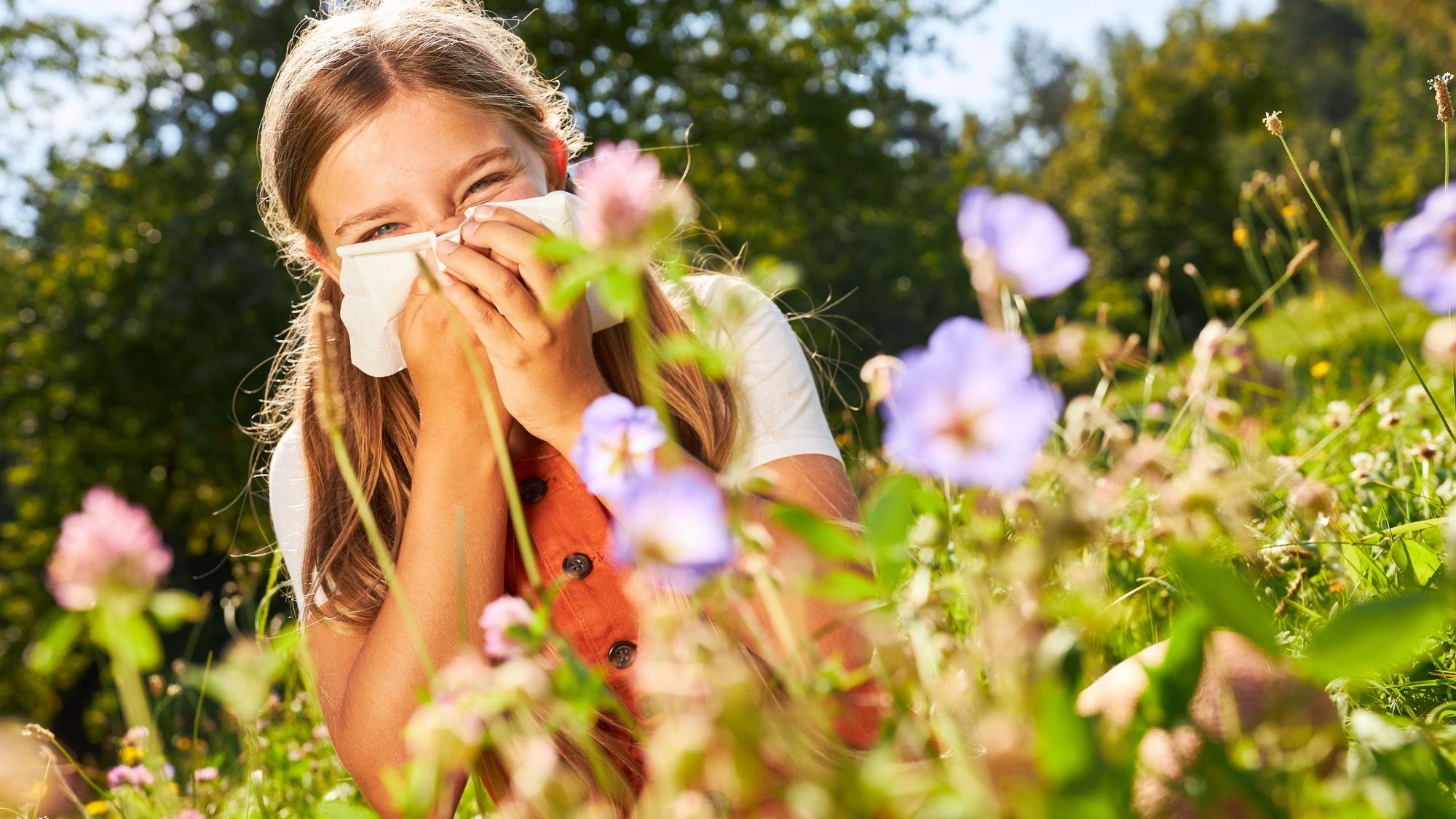
Hay fever symptoms typically mimic that of the common cold, so people often fear that they are contagious. If you experience common cold-like symptoms such as watery eyes, runny nose, congestion, and sneezing often for prolonged periods, you could be experiencing hay fever symptoms.
It’s imperative to learn the difference between the common cold and hay fever, so that you can get proper treatment. If you do have hay fever symptoms, you can also assure people that you’re not spreading a virus. You can feel confident about going to work or school and being surrounded by people, even if you have a drippy nose. Learn more about hay fever below.

What Makes Hay Fever Symptoms Unique?
Hay fever is also popularly known as allergic rhinitis. Some people may also refer to it as a seasonal allergy. If you have this, you experience cold-like symptoms which could make you feel miserable. But unlike the common cold, hay fever is not a virus, so you can’t spread it and you won’t contaminate others.
Instead, hay fever is caused by an overactive immune system which has an allergic response to a usually harmless substance such as dust, pollen, animal dander, or even feathers. The body identifies the substance as a harmful allergen, resulting in inflammation of mucus passages and airways. Hay fever symptoms are so similar to cold symptoms that it may be hard to distinguish the two.
The primary difference is the presence of a low-grade fever and body aches that accompany a common cold. You get none of those with hay fever. The discharge may also be thicker and more yellow when it’s a virus compared to a more thin and watery discharge for allergic rhinitis. You get hay fever symptoms upon exposure to an allergic trigger, and symptoms will persist as long as you’re exposed to the allergen. In contrast, common cold symptoms will appear 1 to 3 days after exposure to a sick person and the symptoms last for 3 to 7 days.

What are Common Hay Fever Symptoms?
As noted above, common hay fever symptoms share similarities with the common cold. Signs and symptoms of hay fever (allergic rhinitis) are the following:
- Runny nose
- Watery and red eyes
- Nasal congestion
- Sneezing
- Cough
- Itchy nose or throat
- Post-nasal drip (mucus that runs down the back of the throat)
- Allergic shiners or dark appearance on the skin underneath the eye area
Those with severe hay fever symptoms may also have itchy eyes, sinus pressure, wheezing, and shortness of breath. They could also experience difficulty sleeping at night because of congestion in the lungs. Consequently, they feel body malaise, fatigue, or headaches throughout the day.
What Causes the Onset of Hay Fever?
Exposure to allergens is the primary culprit for the onset of hay fever symptoms. Hence, you can have symptoms year-round if you’re constantly exposed to the allergen. For some people, it could be worse at a certain time of the year like spring when pollen abounds. Triggers may include any one of the following:
- Dust mites year-round
- Grass pollen in late spring and summer
- Tree pollen in springtime
- Ragweed pollen in winter
- Cockroach droppings year-round
- Animal dander year-round but with worst symptoms in winter when windows and doors are shut
- Spores from outdoor and indoor molds year-round or seasonal
One of the primary risk factors for hay fever is in your DNA. Studies show a strong familial heritability for hay fever. This means allergic rhinitis runs in families, so watch out if your grandparents, parents, or siblings have hay fever symptoms. If you want to ascertain if you have it, you can take a CircleDNA test to confirm your genetic risk factors. This at-home DNA test provides reports on genetic health risks, including reports on allergies, intolerances, and sensitivities.
It is also important to note that hay fever symptoms vary. Some people could experience a couple of days of sneezing and itchy eyes before their symptoms subside. As for others with more severe reactions, symptoms could last for many months. Typically, the reaction time of your body will depend on exposure. For example, if there’s not enough pollen around, you may be able to recover faster. Air quality is another crucial factor for recovery as research attests that cleaner air decreases the prevalence of hay fever symptoms.
How is Hay Fever Diagnosed?
Suffering from hay fever symptoms year-round is no joke. It will make you miserable and affect your daily life. Don’t endure the annoying symptoms and learn your allergic triggers. If you have persistent symptoms, your physician may refer you to an allergist or a doctor specializing in allergies and asthma. Others call them immunologists. Your condition will be diagnosed by the allergist in several ways:
- Family medical history interview
- Getting nasal smears
- Skin prick allergy testing
- Sinus CT scan for those with severe sinus pressure
The skin prick test results will confirm your allergic triggers. Common allergies are usually dust, pet dander, pollen, and/or other food allergies.
Common Hay Fever Treatments
Many people with allergies often get used to hay fever symptoms and do not seek treatment until things become more uncomfortable or severe. When your symptoms interfere with general life and you can’t find relief, it’s imperative to see your doctor to get the right treatment. There may also be special cases where hay fever symptoms worsen. And this could be due to the presence of nasal polyps, frequent sinus infections, or the onset of asthma.
The first line of defense against hay fever is simple over-the-counter allergy medications like antihistamines. Nasal sprays with corticosteroids also help in reducing inflammation in the nasal passages. Frequent saline or salt water flushes are also recommended to cleanse the airways and prevent exacerbation. Those with severe inflammation and unrelenting symptoms may be prescribed other oral medications, such as systemic steroids like betamethasone or prednisone and leukotriene receptors like montelukast.
For severe cases, your allergist may recommend immunotherapy. These are allergy shots given on a regular schedule, usually once a week. The doctor will gradually introduce the allergen into the patient’s immune system. With each shot, the doctor gradually increases the allergic component until a maintenance level is reached. At the end of immunotherapy, the patient will hopefully have a tolerance for the allergen and will no longer manifest symptoms upon exposure to the trigger.
It is important to note that each person responds differently to the various treatments. Some may feel better with simple over-the-counter allergy tablets while others may need constant saline flushes and steroidal nasal sprays. When you suffer from hay fever, it’s vital to pay attention to what triggers it, and work alongside your doctor. Discuss your options for the best possible outcomes.
References:
- Air quality influences the prevalence of hay fever and sinusitis (Neil Bhattacharyya) https://pubmed.ncbi.nlm.nih.gov/19160400/Heritability and shared genetic effects of asthma and hay fever: an Italian study of young twins (Corrado Fagnani et.al.) https://pubmed.ncbi.nlm.nih.gov/18361712/





